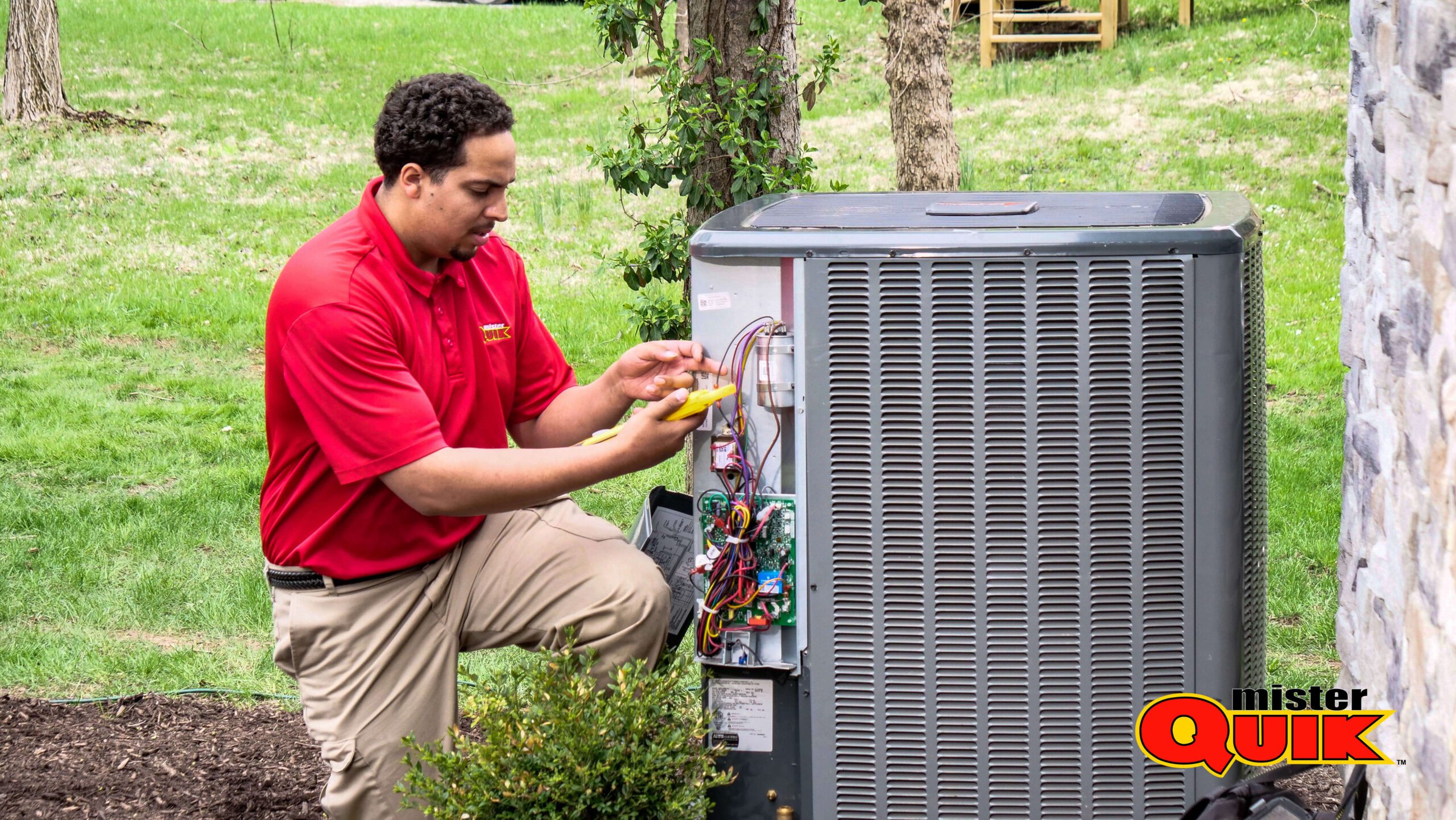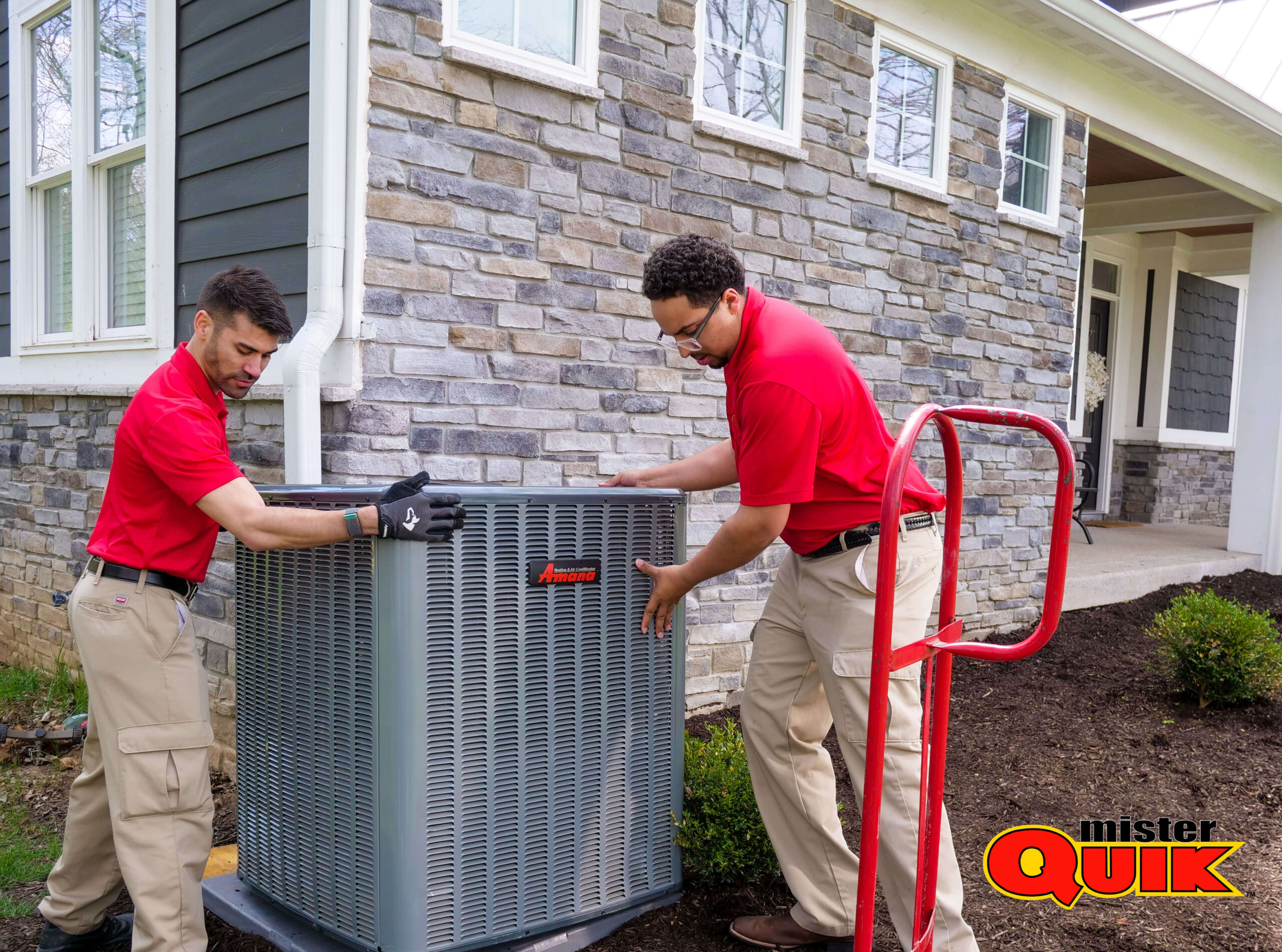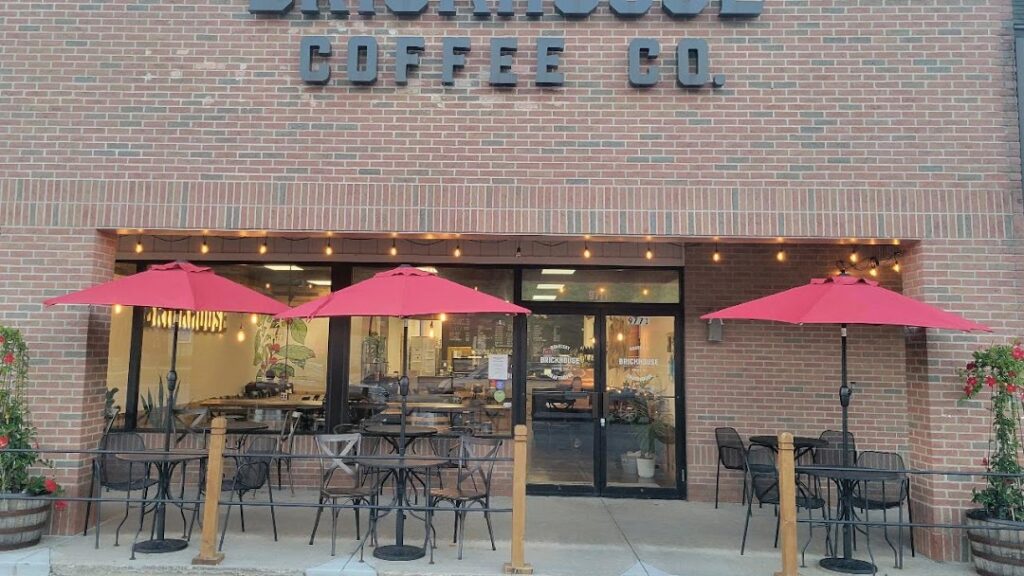Indianapolis Heat Pump Services
Schedule on your own without making a call. Click the button below to get started!

What is a Heat Pump?
A heat pump is a versatile heating and cooling system commonly used in homes, including those in Indianapolis. It works by transferring heat between the indoors and outdoors to maintain a comfortable temperature inside your home.
In the summer, Indianapolis heat pumps operate like air conditioners, extracting heat from inside your home and releasing it outdoors, thus cooling your indoor space. During the winter, they reverse this process, extracting heat from the outdoor air (yes, even in cold temperatures) and transferring it inside to warm your home.
One of the key advantages of Indianapolis heat pumps is their energy efficiency. Unlike traditional heating systems that generate heat, heat pumps simply move heat from one place to another, making them more environmentally friendly and cost-effective to operate.
Additionally, heat pumps offer both heating and cooling capabilities in a single system, eliminating the need for separate heating and cooling units. This makes them a convenient and space-saving option for homeowners in Indianapolis.
Another benefit of heat pumps is their versatility. They can be used in various applications, including single-family homes, apartments, and commercial buildings. Whether you need to heat or cool a small room or an entire house, heat pumps can efficiently provide the desired temperature control.
In summary, Indianapolis heat pumps are an efficient, cost-effective, and versatile heating and cooling solution for homeowners in the area.
Types of Electric Heat Pumps In Indianapolis
In Indianapolis, there are several types of electric heat pumps available to homeowners, each with its own unique features and benefits. Here are the most common types:
Air-source heat pumps are the most common type found in Indianapolis. They extract heat from the outdoor air during the winter to warm your home and transfer heat outdoors during the summer to cool it. These heat pumps are highly efficient and can provide both heating and cooling, making them a versatile option for Indianapolis homeowners.
Geothermal heat pumps use the stable temperature of the ground or water source to heat and cool your home. They circulate a mixture of water and antifreeze through underground pipes to absorb heat from the ground in the winter and release it in the summer. While geothermal heat pumps have higher upfront costs, they offer significant energy savings and long-term benefits, making them a popular choice for environmentally conscious homeowners in Indianapolis.
Ductless mini-split heat pumps are a flexible option for homes without ductwork or those seeking zone-controlled heating and cooling. They consist of an outdoor unit connected to one or more indoor air-handling units, allowing for customizable temperature control in different areas of your home. These heat pumps are energy-efficient and easy to install, making them a convenient choice for Indianapolis homeowners looking to supplement their existing heating and cooling systems.
Hybrid heat pumps combine the efficiency of an electric heat pump with a backup heating source, such as a gas furnace. They automatically switch between electric and gas heating based on outdoor temperatures, optimizing energy usage and comfort. Hybrid heat pumps are ideal for Indianapolis homeowners seeking reliable heating performance in cold weather while still benefiting from the efficiency of electric heat pumps during milder seasons.
- A problem with the thermostat
- A problem with the furnace or boiler
- A problem with the ductwork
- A problem with the fuel supply
- A problem with the thermostat
- A problem with the furnace or boiler
- A problem with the ductwork
- A problem with the fuel supply
- A problem with the thermostat
- A problem with the furnace or boiler
- A problem with the ductwork
- A problem with the fuel supply
- A problem with the thermostat
- A problem with the furnace or boiler
- A problem with the ductwork
- A problem with the fuel supply
- A problem with the thermostat
- A problem with the furnace or boiler
- A problem with the ductwork
- A problem with the fuel supply
Advantages of Installing Indianapolis Heat Pumps
Thinking about installing a heat pump in your Indiana home? Here are some advantages to consider:

- Heat pumps are highly energy-efficient, especially in moderate climates like Indiana. They can provide both heating and cooling using minimal electricity, helping you save on your energy bills year-round.
- By harnessing heat from the outdoor air or ground, heat pumps can deliver more energy than they consume, making them a cost-effective heating and cooling solution for Indianapolis homeowners.
- With a heat pump, you can enjoy comfortable temperatures in your home all year long. In the winter, it efficiently extracts heat from the outdoor air or ground to warm your home, while in the summer, it removes heat from indoors to keep your home cool.
- Heat pumps offer consistent heating and cooling performance, allowing you to maintain a comfortable indoor environment regardless of the season or outdoor temperature fluctuations.
- Heat pumps come in various types, including air-source, geothermal, ductless mini-split, and hybrid models, offering Indianapolis homeowners flexibility in choosing the right system for their needs.
- Whether you have existing ductwork or prefer a ductless solution, there’s a heat pump option that can accommodate your home’s layout and requirements.
- While the upfront cost of installing a heat pump may be higher than traditional heating and cooling systems, the long-term savings in energy costs and maintenance expenses can outweigh the initial investment.
- With proper installation and maintenance from Mister Quik Home Services, your heat pump can provide reliable performance and cost savings for many years to come, making it a smart investment for your Indiana home.
Cons of Using Heat Pumps in Indiana
While heat pumps offer many benefits, there are also some drawbacks to consider, especially in Indiana’s climate:

1. Efficiency in Extreme Cold:
In very cold temperatures, especially during Indiana winters, air-source heat pumps may struggle to extract enough heat from the outdoor air to efficiently heat your home. This can lead to reduced heating efficiency and higher energy bills during cold spells. Switching your heating to Emergency Heat can provide short-term relief, though it is not recommended for long term use due to its high energy consumption.
2. Initial Cost:
The upfront cost of purchasing and installing a heat pump can be higher than that of traditional heating and cooling systems, such as furnaces and air conditioners. This initial investment may deter some homeowners, especially those on a tight budget.
3. Noise Levels:
Some heat pump models, particularly air-source and ductless mini-split systems, may produce more noise during operation compared to traditional HVAC systems. This noise can be bothersome, especially if the heat pump is installed near bedrooms or outdoor living spaces.
4. Maintenance Requirements:
Heat pumps require regular maintenance to ensure optimal performance and longevity. This includes tasks such as cleaning or replacing air filters, inspecting refrigerant levels, and checking for any potential issues.
5. Compatibility with Existing Systems:
Retrofitting a heat pump into an existing HVAC system may require modifications to ductwork or electrical wiring, depending on the type of heat pump chosen. This can add to the overall installation costs and complexity.
Consider these cons of using heat pumps in Indiana when making your decision, and consult with Mister Quik Home Services for expert advice and installation services tailored to your home's requirements.
Are Heat Pumps Good in Indiana?
Heat pumps stand out as highly suitable options for Indiana climates due to their remarkable energy efficiency and versatile operation. In Indiana, where weather patterns can fluctuate dramatically throughout the year, from hot and humid summers to cold and snowy winters, the adaptability of heat pumps makes them an ideal heating and cooling solution.
One of the primary reasons why heat pumps excel in Indiana’s climate is their ability to extract heat from the air, even when temperatures drop below freezing. This process not only ensures consistent comfort but also helps homeowners save on energy costs by reducing reliance on conventional heating methods.
Moreover, during the warmer months, heat pumps operate in reverse, extracting heat from inside the home and expelling it outdoors to maintain a comfortable indoor temperature. This dual functionality eliminates the need for separate heating and cooling systems, streamlining energy usage and enhancing overall efficiency. By leveraging this heat transfer process, heat pumps can deliver substantial energy savings compared to traditional HVAC systems, benefiting both homeowners and the environment.
Another advantage of heat pumps in Indiana’s climate is their ability to dehumidify indoor air during the humid summer months. By removing excess moisture from the air, heat pumps not only enhance comfort levels but also contribute to better indoor air quality and prevent issues like mold and mildew growth.
Overall, the energy efficiency and adaptability of heat pumps make them well-suited for the varied climate of Indiana. Whether it’s providing reliable heating in winter or efficient cooling in summer, heat pumps offer homeowners a cost-effective and environmentally friendly solution for year-round comfort.
Benefits of Installing Heat Pumps in Indiana
Heat pumps are renowned for their energy-efficient and cost-effective operation, making them increasingly popular choices for home heating and cooling solutions. Unlike traditional heating systems that rely on burning fuel to generate heat, heat pumps utilize the principles of thermodynamics to transfer heat from one place to another, typically between the indoors and outdoors. This process requires significantly less energy compared to conventional heating methods, resulting in lower energy consumption and reduced utility bills for homeowners.
In addition to their energy efficiency, heat pumps offer cost-effective operation, helping homeowners save money on their heating and cooling expenses over time. While the initial investment in purchasing and installing a heat pump may be higher than that of traditional heating systems, the long-term savings in energy costs often outweigh the upfront costs. With proper maintenance and regular servicing, heat pumps can provide reliable and efficient heating and cooling for many years, offering homeowners peace of mind and financial savings in the process.
Overall, the combination of energy efficiency and cost-effectiveness makes heat pumps an attractive option for homeowners seeking to reduce their carbon footprint and lower their utility bills. With their ability to provide both heating and cooling solutions in a single system, heat pumps offer versatility, comfort, and savings for households in Indiana and beyond.
Troubleshoot Checklist:
- Check thermostat settings to ensure they are correctly configured for heating or cooling mode.
- Inspect air filters for dirt or blockages, as clogged filters can restrict airflow and reduce system efficiency.
- Check for loose or damaged parts such as fan blades or motor mounts that may cause vibrations.
- Inspect the outdoor unit for debris such as leaves or branches that may be obstructing airflow and causing noise.
- Check air ducts for leaks or blockages that may restrict airflow to certain areas of the home.
- Clean air vents and registers to remove dust or debris that may be obstructing airflow.
- Check air filters and replace them if dirty to prevent restricted airflow and subsequent coil icing.
- Ensure adequate airflow around the outdoor unit by clearing any debris or vegetation blocking the airflow.
- Check thermostat batteries and replace them if depleted to ensure proper communication with the heat pump.
- Verify the power supply to the heat pump by checking circuit breakers and reset switches.








